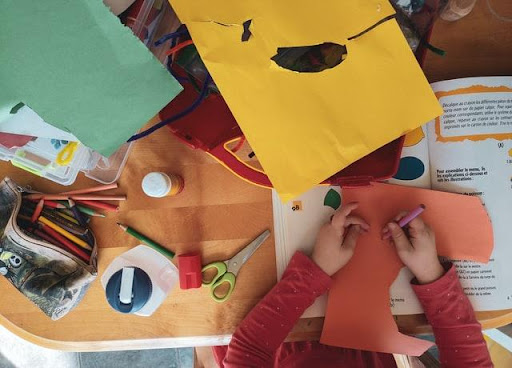Newsletter
Subscribe to stay updated on our latest news, upcoming workshops, training and special offers

Parents play a vital role in helping their children develop a growth mindset. A growth mindset is a belief that intelligence and talent can be developed through hard work, good strategies, and input from others. The term was coined by psychologist Carol Dweck in her book Mindset: The New Psychology of Success. Since then,
The idea of a growth mindset has been widely embraced by educators across the globe. This is as a way of motivating children to work hard in school and learn from their mistakes. Children with a growth mindset believe they can improve their abilities even when they experience setbacks or failures. They’re not afraid to challenge themselves, try new things, or take risks—all of which are necessary to learn and grow.

Children with a fixed mindset, on the other hand, believe that their abilities are static and that there’s not much they can do to change them. Children who believe that intelligence isn’t fixed are less likely to give up during hard times or feel defeated because their natural talents aren’t readily visible. This type of attitude can help children succeed in school and throughout life.
If you have a child who regularly gets upset after making mistakes or isn’t willing to try something new because of the possibility of failure, it might be useful for you as parents to talk about some ways you can help them develop a growth mindset.
Developing a growth mindset can be challenging. However, you can help your child or student develop a growth mindset with the following strategies:
Teach children about the importance of effort and learning over natural talent. Make sure they understand that their current level of achievement is not a measure of their intelligence or ability.
Talk about what makes each child unique. Children need to know that everyone has strengths and weaknesses that make us who we are. Help your children find their talents by complimenting them on tasks they have completed well or pointing out things they do easily. Praise effort instead of intelligence.
Encourage children to develop skills that might be outside of their comfort zone. Explain why it is important to keep practising new skills even if they are frustrated or not making progress as quickly as they want. Give examples from your own life where you had to keep working hard at something and practice to get better at it.

Photo by Ramin Talebi on Unsplash
Have your child practice this strategy using something easy for them, like riding a bike, and then have them apply the same strategy to something more difficult, like playing a musical instrument. Explain that when you feel like giving up on something, you need to tell yourself “easy” or “I can do this.” Then have them use this strategy while trying something new and challenging.
It’s great to celebrate good grades and praise your child for an accomplishment. But make sure you also give your child credit for effort and improvement. Thus, if your child does poorly on a test, don’t just focus on their poor performance (reinforcing the idea that intelligence is fixed). Instead, focus on the things they can do to improve performance in the future (which reinforces a growth mindset).
Rather than always focusing on success, parents should set their kids up to learn from failure. By stating that everyone has experienced failure before, you can help them see failure is just another part of learning. Everyone has failed at something before, but that doesn’t mean they aren’t successful. They just learned from their mistakes and moved on to be successful at something else.
Set goals with your child—academic goals as well as other aspirations he or she might have. But be sure to talk about not only what your child wants to achieve but also about his or her process for achieving it; this shows that you value effort over “naturals” or talent alone.
Children learn by example. If you have a fixed mindset about your abilities — if you think you’re not good at math or that you’ll never be an artist — your child is likely to absorb those beliefs, too. Instead, try to avoid statements like “I’m no good at art” or “I’m terrible at math.” Instead, say things like “I need more practice” or “I’m going to keep trying until I get better.”
Developing a growth mindset takes practice, which is another reason to seek out feedback from others. If you are expecting your child to be a genius—as many parents do—you’re likely setting them up for disappointment by their unrealistic expectations for themselves, who may be less able to achieve at the level you desire. The idea is not to accept mediocrity but to encourage effort, persistence and growth over time. This, in turn, can help cultivate a love of learning and a passion for being smart.
Reference
Dweck, C. S. (2008). Mindset: The New Psychology of Success. Ballantine Books.
September 30, 2020

August 24, 2022

December 17, 2024

September 30, 2020